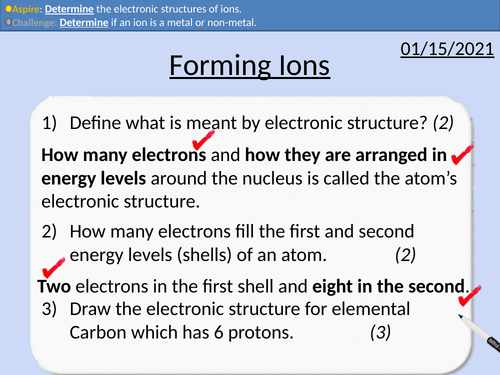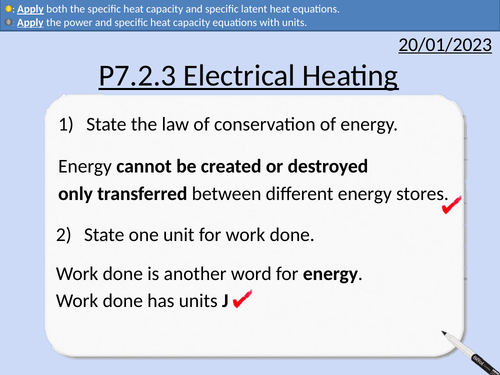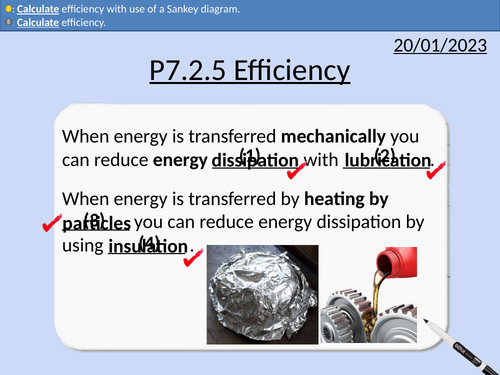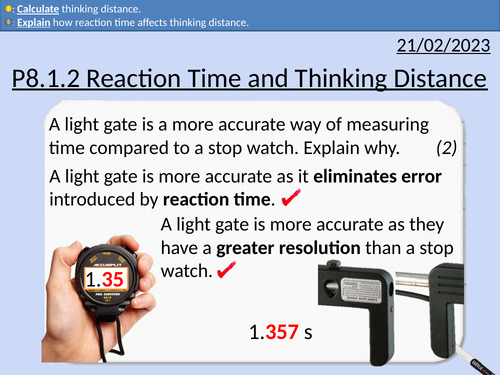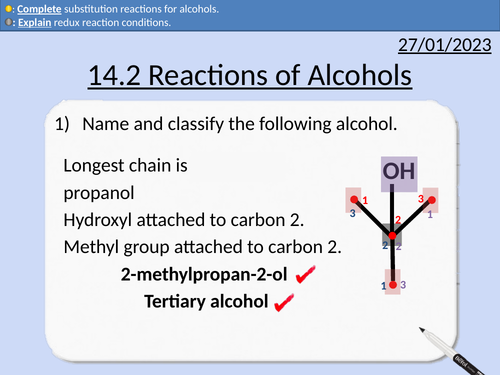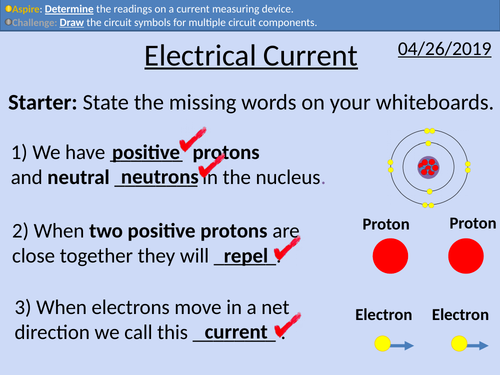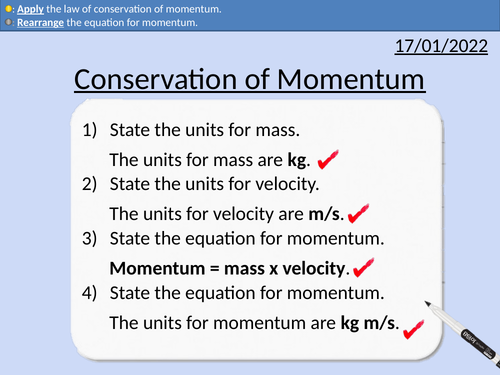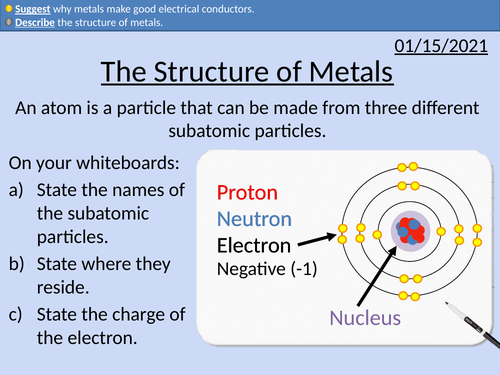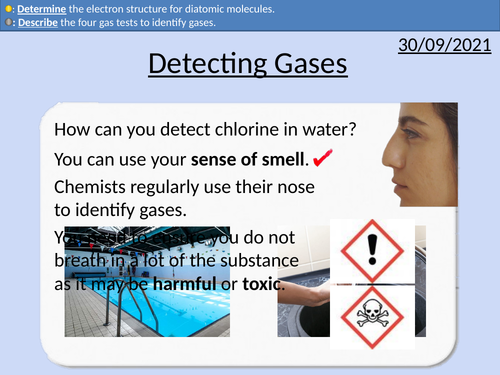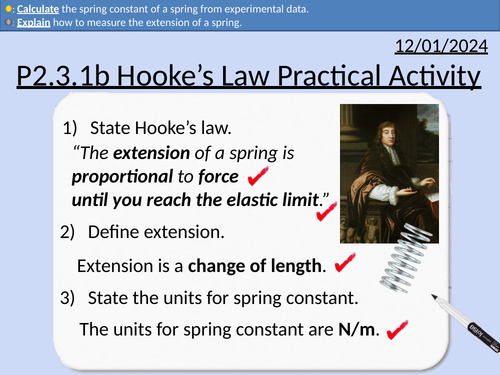496Uploads
162k+Views
70k+Downloads
All resources

OCR AS Chemistry: Reactions of Alkenes
OCR AS Chemistry: 13.3 Reactions of Alkenes
This PowerPoint is a whole lessons included with student activities, animated answers, homework questions with answers provided.
This lesson covers:
Alkene addition reactions:
Hydrogen with a nickel catalyst
Halogens
Hydrogen halide
Steam with an acid catalyst
Test for unsaturated alkenes.
Bond enthalpy for sigma and pi bonds.

OCR AS Chemistry: Stereoisomerism
OCR AS Chemistry: 13.2 Stereoisomerism
This PowerPoint is a whole lessons included with student activities, animated answers, homework questions with answers provided.
This lesson covers:
E/Z isomerism
Conditions for trans- and cis- isomerism
Cahn-Ingold-Prelog rules and priority ordering

OCR AS Chemistry: Properties of Alkenes
OCR AS Chemistry: 13.1 Properties of Alkenes
This PowerPoint is a whole lessons included with student activities, animated answers, homework questions with answers provided.
This lesson covers:
Comparing pi-bond (π-bond) and sigma bonds (σ-bonds).
Aliphatic alkenes and alicyclic arrangements of molecules
s, p, d orbitals for electrons
Trigonal planar shape of alkanes leading to 120 degree bond angle.

GCSE Chemistry: Forming Ions
This PowerPoint presentation with worked examples and student questions covers:
• Definition of ions
• The electronic configuration of ions
• Ions metals and nonmetals form
• Drawing electron configurations

GCSE Physics: Electrical Heating
This presentation covers OCR Gateway Physics 9-1 P7.2.3 Electrical Heating Transfers. All presentations come with student activities and worked solutions.
Walls and Insulation
Thermal energy dissipation
Reducing thermal energy dissipation with lubrication and insulation
Heating substances and state changes
Work done = Power x Time
Change in thermal energy = Mass x Specific Heat Capacity x Change in temperature
Thermal energy for state change = Mass x Specific latent heat

GCSE Physics: Efficiency
This presentation covers OCR Gateway Physics 9-1 P7.2.5 Efficiency.
All presentations come with student activities and worked solutions.
Efficiency Ratings
Improving efficiency with insulation and lubrication
Maximum efficiency
Efficiency equation
Sankey diagrams

GCSE Physics: Reaction Time and Thinking Distance
This presentation covers OCR Gateway Physics 9-1 P8.1.2 Reaction Time and Thinking Distance. All presentations come with student activities and worked solutions.
Reaction time definition
Factors that increase reaction time
Simple reaction time experiment
Thinking distance
Rearranging equations
Speed equation
(Final velocity)2 – (Initial velocity)2 = 2 x Acceleration x Distance
v2 – u2 = 2 a s

OCR AS Chemistry: Reactions of Alcohols
OCR AS Chemistry: 14.2 Reactions of Alcohols
This PowerPoint is a whole lessons included with student activities, animated answers, homework questions with answers provided.
This lesson covers:
Combustion of alcohols
Reflux condition for reactions
Primary alcohol to aldehydes
Primary alcohols to carboxylic acids
Secondary alcohols to ketones
Dehydration of alcohols
Substitution reactions for alcohols

GCSE Physics: Electrical Current
This PowerPoint presentation with worked examples and student questions covers:
• Circuit symbols
• Conditions for current to flow
• Measuring current in series circuits
• Measuring current in parallel circuits.

GCSE Physics: Conservation of Momentum
This PowerPoint presentation with worked examples and student questions covers:
Definition for conservation of momentum
Rearranging the momentum equation
Adding vectors (momentum)
Applying conservation of momentum
Elastic and inelastic collision
CERN and discovering particles with conservation of momentum

GCSE Physics: Satellites
This presentation covers OCR Gateway Physics 9-1 P8.3.3 Satellites
This PowerPoint is a whole lessons included with student activities and animated answers.
Natural Satellites
Geostationary Satellites
Low Polar Orbit Satellites
Speed is constant and velocity is changing in stable orbits.
Changing speed and radius
Gravitational force, acceleration, and speed.
Plotting data and describing relationships

GCSE Chemistry: The Structure of Metals
This PowerPoint presentation with worked examples and student questions covers:
• State a use for metals
• Describe the structure of metals
• Why metals make good electrical conductors.
• Metals on the periodic table

GCSE Chemistry: Electrolysis of Water
This PowerPoint presentation with worked examples and student questions covers:
• Pure water being made partially of ions (hydrogen and hydroxide).
• PANIC convention for electrodes
• OILRIG convention for redox reactions
• Electron transfers at electrodes
• Half-equations for anode and cathode
• Balancing half-equations

GCSE Chemistry: Detecting Gases
This PowerPoint presentation with worked examples and student questions covers:
Tests for Hydrogen, Oxygen, Carbon Dioxide, Chlorine.
Gifs of each gas test
Electron structure for diatomic molecules

GCSE Chemistry: Alkanes
This PowerPoint presentation with worked examples and student questions covers:
• Definition of hydrocarbons
• Carbon and hydrogen saturation
• Mnemonic device for naming alkanes
• Comparing complete and incomplete combustion
• Balancing complete combustion reactions

GCSE Physics: Hooke's Law Practical
This PowerPoint presentation with worked examples and student questions covers:
• Definition of Hooke’s Law
• Converting from centimeters to meters
• Converting from millimeters to meters
• Calculating the spring constant from a gradient of a force-extension graph
• The parallax effect and good experimental practice
• Data analysis (calculating mean and significant figures).

GCSE Chemistry: Biological Polymers
This PowerPoint presentation with worked examples and student questions covers:
Proteins as polymers and amino acids as monomers
Carbohydrates and simple sugars
Comparing simple sugars (glucose, fructose, and sucrose) with complex carbohydrates (starch).
DNA as a polymer and nucleotides as monomers
Structure of nucleotides (phosphate group,
a sugar (deoxyribose), and an organic base).
Base pairing in DNA and hydrogen bonds

OCR AS Chemistry: Nomenclature of Organic Compounds
OCR AS Chemistry: 11.2 Nomenclature of Organic Compounds
This PowerPoint is a whole lessons included with student activities, animated answers, homework questions with answers provided.
This lesson covers:
Aliphatic, alicyclic, and aromatic compounds.
Naming organic compounds
Drawing organic compounds
Functional Groups
Alkane
Alkene
Alkyne
Alcohols
Haloalkane
Aldehyde
Ketone
Carboxylic Acid
Ester
Amine
Nitrile

OCR AS Chemistry: Representing the formulae of Organic Compounds
OCR AS Chemistry: Formulae for Organic Compounds
This PowerPoint is a whole lessons included with student activities, animated answers, homework questions with answers provided.
This lesson covers:
molecular formula
empirical formula
general formula
displayed formula
structural formula
skeletal formula





